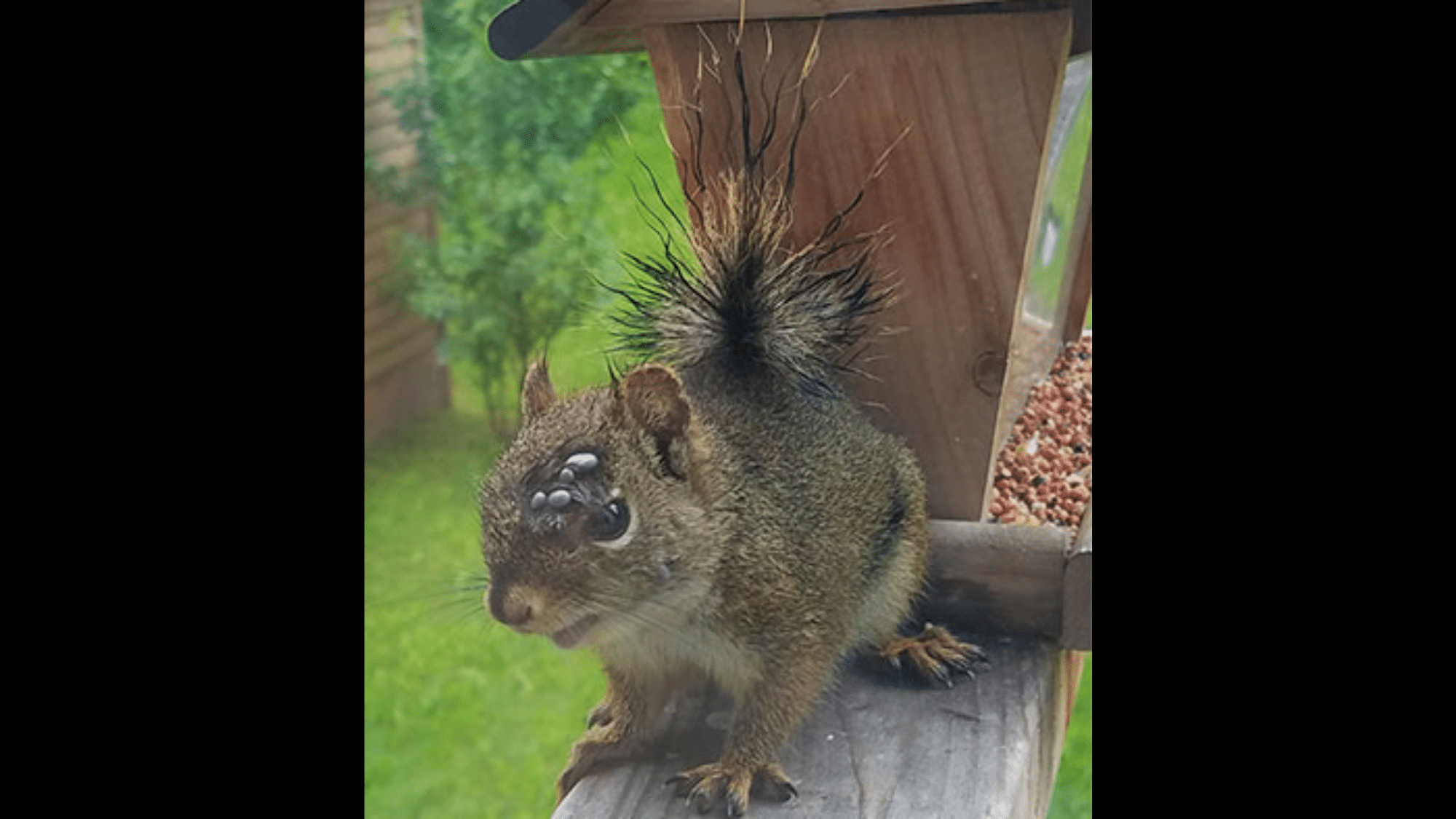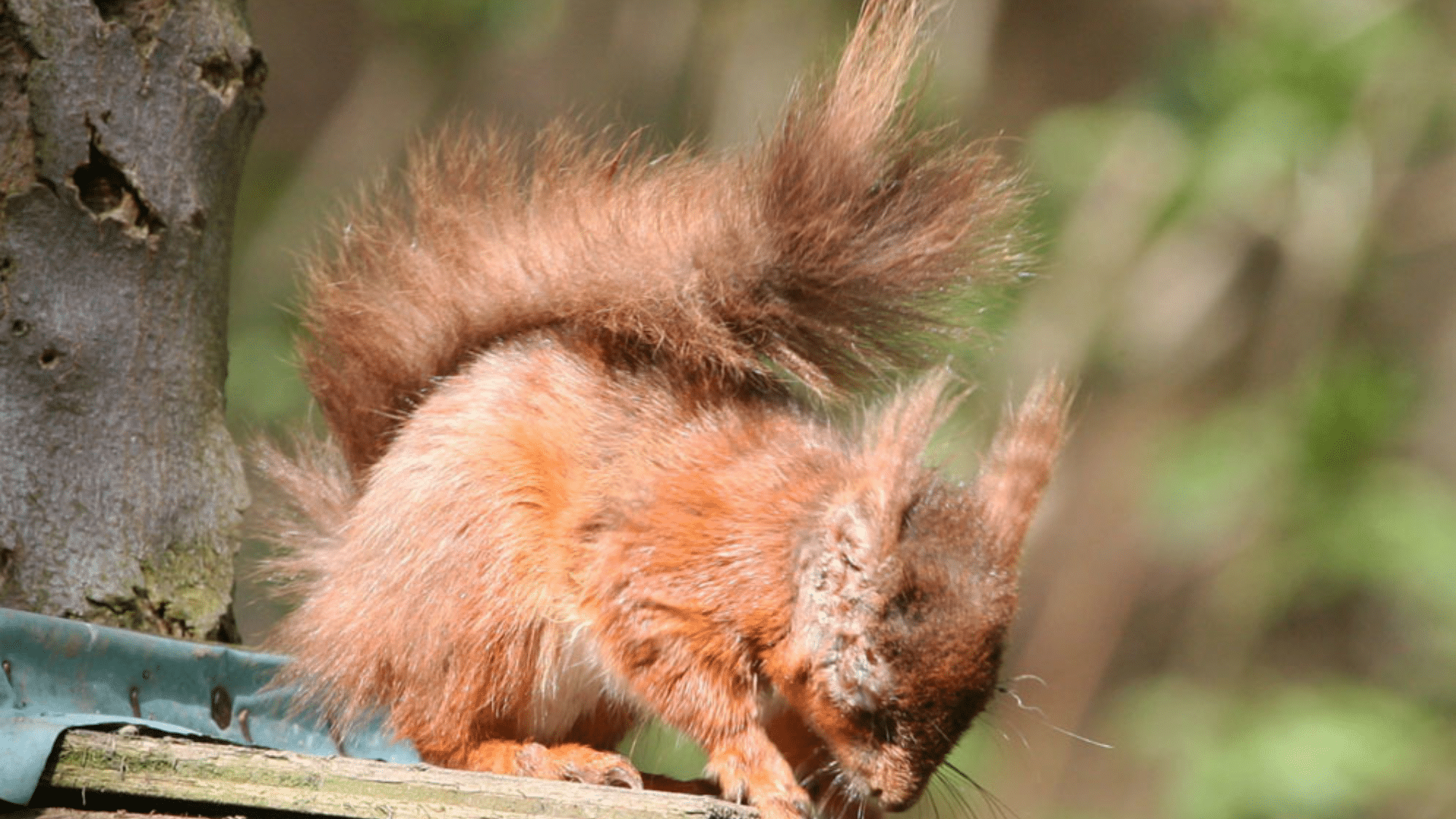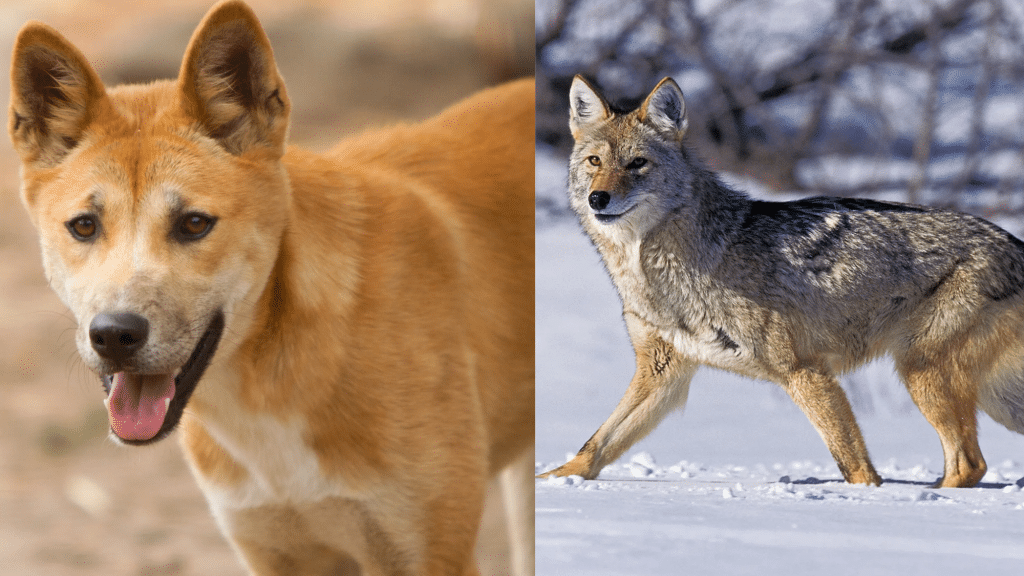Squirrels acting strangely in your yard might be showing signs of illness. These small animals can become ill, and knowing what to look for is crucial.
Many people walk past squirrels daily without noticing when something’s wrong. The signs can be subtle but important.
This guide will teach you about health problems in squirrels and how to spot them. You’ll learn what different symptoms mean and when to call wildlife experts.
Why does this matter? Sick squirrels can affect other wildlife, and sometimes pets, too. The information in this article will help you make smart choices when you spot an unwell squirrel nearby.
Common Diseases Transmitted by Squirrels
Let’s discuss health issues that can be transmitted from squirrels to other animals or humans. These small rodents can carry several sicknesses without showing many symptoms themselves.
The most frequent illnesses include:
- Salmonellosis, which causes fever and stomach problems
- Leptospirosis, leading to flu-like symptoms
- Tularemia, known for causing skin sores and fever
- Lyme disease, carried by ticks that live on squirrels
- Rabies is rare but a serious threat
Each disease presents differently, and some may take days or weeks to exhibit noticeable signs. The following sections will outline what to look for with each specific illness.
Parasites Carried by Squirrels and Their Impact
Squirrels often host tiny, unwanted guests on their bodies and in their homes. These parasites can cause health issues for squirrels and occasionally for people or pets in the vicinity.
External Hitchhikers
Fleas jump between hosts and bite to feed on blood. They leave itchy spots and may spread diseases.
Ticks attach to squirrels and remain attached for several days. After feeding, they might move to pets or people, potentially carrying Lyme disease.
Mites are microscopic, but they cause significant problems. They create intense itching and skin damage for squirrels.
Internal Troubles
Roundworms live in squirrels’ intestines. Their eggs pass through droppings and can infect the soil in yards.
Tapeworms grow inside squirrels after they eat infected insects. These parasites steal nutrients from their hosts.
The impact? Squirrels with heavy parasite loads become weak, lose fur, and show unusual behavior.
For humans, the risk arises from handling squirrels or spending time in areas contaminated with their droppings.
Specific Viral and Bacterial Infections in Squirrels

Squirrels catch many infections that affect their health in serious ways. These small animals face threats from both viruses and bacteria that spread through their communities.
Viral Infections
- Squirrel Fibroma: Causes skin growths and lumps on the body
- Squirrelpox: Creates scabs and lesions, often fatal in red squirrels
- Rabies: Though rare in squirrels, it causes odd behavior and aggression
Most viral issues manifest as skin problems or unusual behaviors in affected animals.
Bacterial Challenges
- Tularemia: Makes squirrels lethargic with visible swollen glands
- Salmonella: Leads to diarrhea and weakness
- Plague: Yes, squirrels can carry plague bacteria in some regions
Bacterial infections often cause fever, reduced movement, and visible discomfort.
Identifying these issues helps track the health of wildlife in local areas. Most sick squirrels will hide rather than display symptoms openly, making detection more challenging.
Health Risks to Humans from Squirrel Diseases
People who come into contact with squirrels should be aware of potential health concerns. While most squirrels avoid humans, their diseases can sometimes cross over.
Direct Contact Risks: The risk of contracting an illness directly from a squirrel is small but real. Bites and scratches pose the biggest threat. Any wound from a wild animal requires prompt medical attention.
Environmental Exposure: Squirrel nests, droppings, and urine can harbor harmful germs. Cleaning these without proper protection may lead to inhaling hazardous particles.
Several health issues might develop after exposure like:
- Fever and chills
- Skin rashes or infections
- Breathing problems
- Stomach upset
Some folks need extra caution around areas with squirrels such as:
- Young children
- Older adults
- People with weaker immune systems
- Those who work outdoors
Washing hands after outdoor activities, maintaining a safe distance from wild animals, and wearing gloves when gardening are all ways to prevent problems.
Remember that serious issues from squirrel diseases remain uncommon with proper precautions.
Managing and Preventing Squirrel-Related Diseases
Keeping safe from squirrel-related health issues doesn’t mean getting rid of these furry visitors. Smart prevention works better than panic.
| Category | Actions |
|---|---|
| Around The Home |
|
| Yard Safety |
|
| If Contact Happens |
|
| For Pet Owners |
|
Pro Tip: What comes next depends on your situation. If you spot sick squirrels in your area, contact wildlife experts. For any unusual symptoms after contact with a squirrel, seek medical advice promptly.
Wrapping It Up
Stay vigilant, stay safe! While squirrels bring joy to our yards, recognizing illness symptoms protects your family and pets from potential disease transmission.
Simple precautions like proper hand hygiene, maintaining distance, and contacting wildlife experts when needed ensure you can safely enjoy these acrobatic entertainers.
Knowledge is your best defense against squirrel-related health risks.















